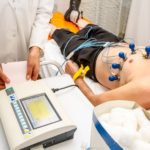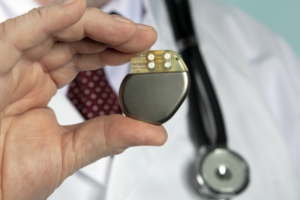You may never have considered visiting a Cardiologist. The very thought scares some people. The idea that there may possibly be something ‘wrong’ with your heart isn’t pleasant.
The fact is if there happens to be something going on with your heart it is by far better to find out and treat it as soon as possible in order to get the very best outcome. We would also like to note that some visits do end with a diagnosis of ‘nothing at all wrong with your heart’. There are several medical issues that can mimic heart problems.
Most patients don’t jump directly to visiting a Cardiologist. Consultations are mostly recommended by a patient’s primary care doctor as a result of either heightened risk factors for cardiovascular disease or symptoms that indicate it may already be an issue.
The number one killer in the world is heart disease. It affects 80 million people. Physicians are well aware of the stakes in early detection.
Risk Factors for Heart Disease
- Major risk factors include:
- Genetics – Immediate family members affected and diagnosed already.
- Heightened blood pressure readings.
- Raised cholesterol levels.
These may prompt your primary doctor to refer you to a cardiologist.
A genetic history of heart disease may be the catalyst for an evaluation or for low-level tests to check heart function. Depending on the results, you may continue to be monitored by your primary care physician or be given a clean bill of health.
Symptoms causing patients to seek cardiology care may include:
- Arrhythmias (Rhythm disturbances) can include palpitations or missed heartbeats.
- Angina (chest pain or discomfort)- This often indicates narrowed arteries.
- Inability to catch your breath. This may indicate congestive heart failure or valve issues.
- A cardiac event, such as a heart attack.
If you are in need of an excellent cardiology team in Tampa, Florida we invite you to take a look at Tampa Cardiovascular Associates. This world-renowned team of physicians can handle any form of cardiac issue. We would love the opportunity to review your medical history with you, do a physical exam, and help get you on the right track to your best cardiac health possible.
Give us a call at 813-975-2800 or visit us online bygone to www.tampacardio.com. We are located conveniently at 3010 E. 138th Avenue, Suite 12 in Tampa, Florida 33613.


 A pacemaker can save your life, but it is also sure to alter it as well.
A pacemaker can save your life, but it is also sure to alter it as well.
 What is a heart murmur? Common conditions can make your heart beat faster and that can lead to the onset of a heart murmur. They can happen if you become anemic or pregnant, have an overactive thyroid, a high fever, or high blood pressure.
What is a heart murmur? Common conditions can make your heart beat faster and that can lead to the onset of a heart murmur. They can happen if you become anemic or pregnant, have an overactive thyroid, a high fever, or high blood pressure.